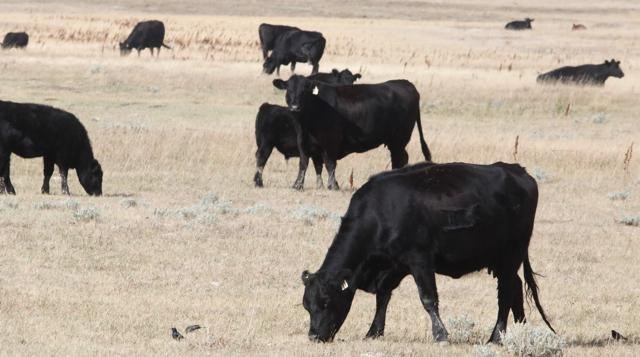One person faces several charges after more than 300 cattle were seized from his farm last winter.
According to Karen Briere of Western Producer, Warren Russell of the Stoughton area was charged under Section 4 of the province’s Animal Protection Act. That section prohibits anyone from causing an animal to be in distress or to continue to be in distress.
In Weyburn provincial court on Tuesday, Russell was told by the judge the Crown was not proceeding under the provinical act, but the charges are now under the Criminal Code, for willfully permitting “to be caused unnecessary pain, suffering or injury to an animal” and for willfully neglecting or failing “to provide suitable and adequate food, water, shelter and care for animals.”
He was also told the Crown is proceeding by indictment, because the charges are now over six months old.
Russell told court that he needs time to hire a suitable lawyer, saying that he talked to a number of lawyers in Weyburn and Regina, and none of them were familiar with the new act that he is being charged under. The charges were set over to Jan. 14, 2020, in Weyburn provincial court, to give him time to arrange for a lawyer.
The Crown also turned over a binder of disclosure documents to him, and Russell was advised to pass these on to his lawyer once he hires one.
When his cattle were seized in January, Russell talked to the Western Producer. In the interview, he said that his animals were in good condition, had adequate feed and water, and weren’t in distress.
Under new animal protection legislation that came into effect last fall, the definition of distress doesn’t just mean a lack of food and water. It can include a lack of protection from the cold, abuse, neglect, or animals being kept in conditions that contravene the prescribed standards under the beef code of practice and that could significantly impair the animals’ health or wellbeing over time.
Although some cattle may be found in good condition, court precedents have determined animals can be seized so that they don’t fall into distress.
Russell maintained he cared for his cattle. They were bale grazing on a section of rented pasture and he suggested anyone who grazes corn or bales could find themselves in the same situation he was in because the public might not understand how extensive grazing works.
Russell said he still had 30-plus untouched bales at the time of the seizure. He admitted APSS had presented him with a corrective action order five days before the cattle were seized. It called for measures such as chopping holes in the dugout.
“That correction order was followed to the T,” Russell said.
He had five business days to reclaim his cattle. To do so he had to pay the costs of the seizure and comply with orders regarding proper care. He said the bill came to $50,000 and he had no way to come up with that much money. However, he was entitled to the proceeds of a cattle sale, less costs, once they were deemed fit enough to be sold.




